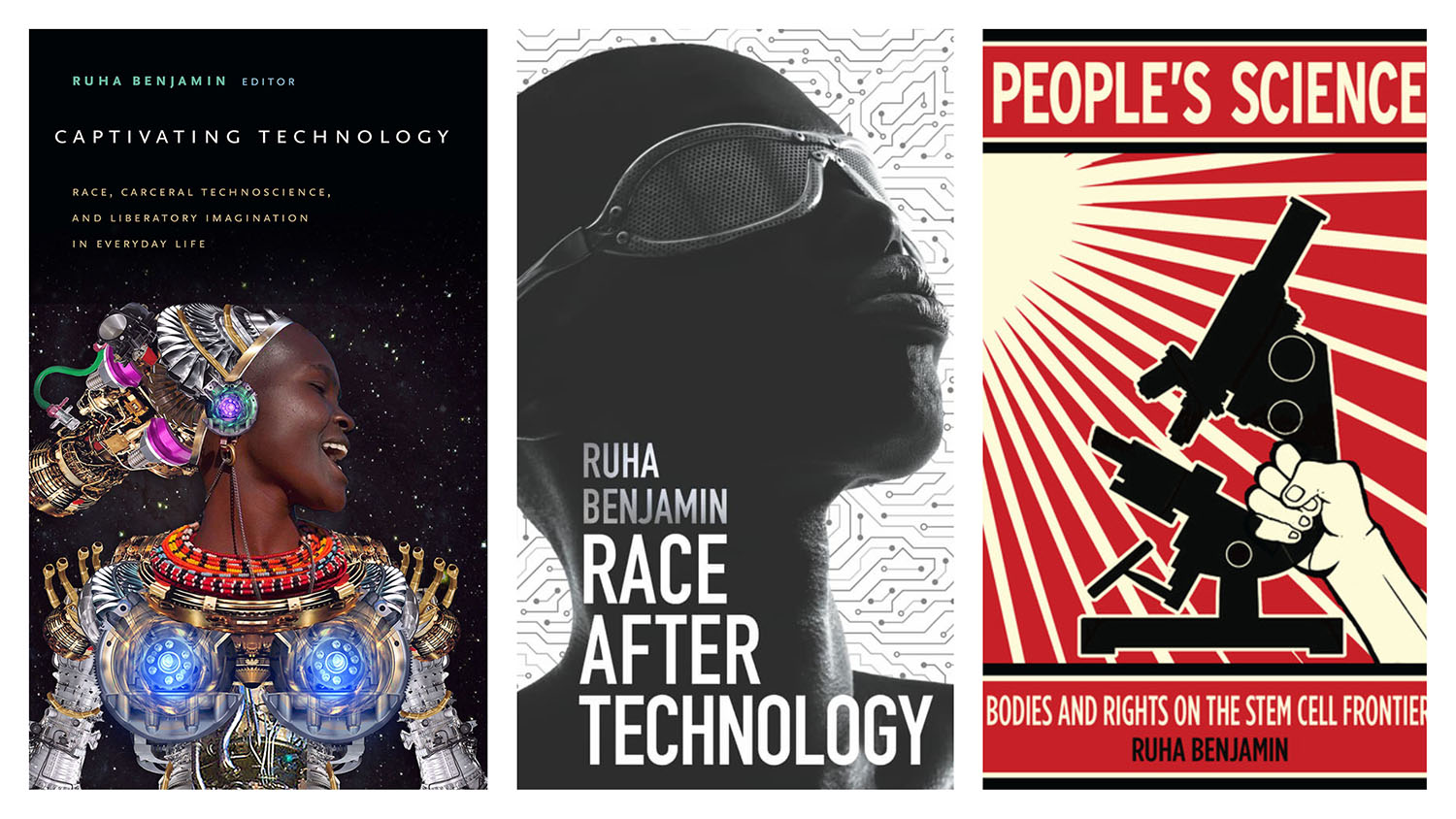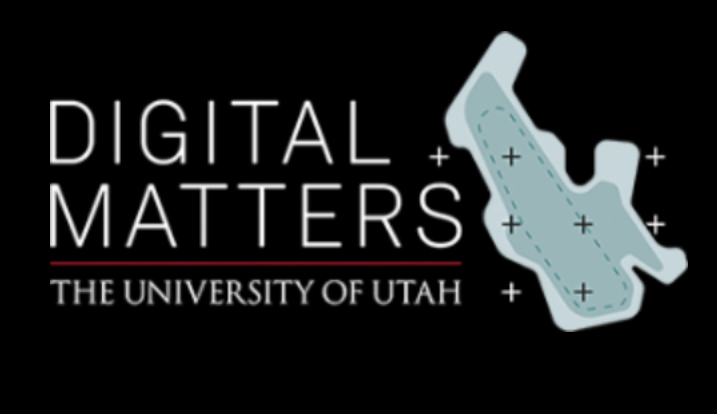FALL 2020 TANNER TALK: RUHA BENJAMIN
OCTOBER 15, 2020 at 12:00PM - (VIRTUAL EVENT)
Is code colorblind? Can artificial intelligence predict prejudice and prevent discrimination? How can technology companies protect human rights and promote equality?
To launch the Tanner Humanities Center's 2020-2021 series on "Technology and the Humanities," Ruha Benjamin joined Tanner Humanities Center Director Erika George for a Tanner Talk on the intersections of race, justice and technology.
Ruha Benjamin is a Professor of African American Studies at Princeton University and founder of the Just Data Lab. Her work analyzes the social dimensions of science, technology, and medicine. Her books include: Race After Technology: Abolitionist Tools for the New Jim Code (2019), Captivating Technology: Race, Carceral Technoscience, and Liberatory Imagination in Everyday Life (2019, editor), and People’s Science: Bodies and Rights on the Stem Cell Frontier (2013).
Erika George is the Director of the Tanner Humanities Center and the Samuel D. Thurman Professor of Law at the S.J. Quinney College of Law at the University of Utah. Her research focuses on human rights and international law. Her book Incorporating Rights, forthcoming from Oxford University Press, examines strategies to advance corporate accountability.
George has testified before the United Nations Committee on the Elimination of Racial Discrimination and is a leading voice on conversations about equity, diversity, and inclusion on the U campus and in our community.
Resources List
Tanner Talk Technology and the Humanities
*The following resources were crowdsourced or referenced during the Fall 2020 Tanner Talk with Ruha Benjamin and Erika George
ORGANIZATIONS/MOVEMENTS
The Algorithmic Justice League’s mission is to raise awareness about the impacts of AI, equip advocates with empirical research, build the voice and choice of the most impacted communities, and galvanize researchers, policy makers, and industry practitioners to mitigate AI harms and biases. https://www.ajl.org/
Through hosted conferences and project sponsorship, the Allied Media Network is a nonprofit organization committed to supporting the communication media sector in creating more “just, creative and collaborative world” that is committed to social justice. https://alliedmedia.org/
ColorCoded is a tech learning space that centers historically-excluded people in the co-teaching, co-creation, and co-ownership of new technologies. https://colorcoded.la/
Data for Black Lives is a movement of activists, organizers, and mathematicians committed to the mission of using data science to create concrete and measurable change in the lives of Black people. https://d4bl.org/about.html
Design Justice Network members rethink design processes, center people who are normally marginalized by design, and use collaborative, creative practices to address the deepest challenges our communities face. https://designjustice.org/
The Ida B. Wells Just Data Lab brings together students, educators, activists, and artists to develop a critical and creative approach to data conception, production, and circulation. Our aim is to rethink and retool data for justice. https://www.thejustdatalab.com/about-the-lab
Media Justice is building a powerful grassroots movement for a more just and participatory media —fighting for racial, economic, and gender justice in a digital age. https://mediajustice.org/
#MoreThanCode, by the tech for social justice project, is a “participatory action research project intended to better understand the types of work currently being done with technology for social justice (and more broadly, in the public interest), as well as the pathways people take into this work.” https://morethancode.cc/about/
BOOKS
Benjamin, Ruha. Race After Technology: Abolitionist Tools for the New Jim Code. Cambridge, Polity, 2019. https://www.ruhabenjamin.com/race-after-technology
Benjamin, Ruha, ed. Captivating Technology: Race, Carceral Technoscience, and Liberatory Imagination in Everyday Life. Durham, Duke UP, 2018. https://www.ruhabenjamin.com/captivating-technology
Davis, Angela. “Are Prisons Obsolete?” New York, Seven Stories Press, 2003. https://www.feministes-radicales.org/wp-content/uploads/2010/11/Angela-Davis-Are_Prisons_Obsolete.pdf
D’Ignazio, Catherine, and Lauren F. Klein. Data Feminism. Cambridge, MIT UP, 2018. https://data-femainism.mitpress.mit.edu/
Montiero, Mike. Ruined by Design: How Designers Ruined the World, and What We Can Do to Fix it. Independently published, 2019.https://www.ruinedby.design/
ARTICLES/ONLINE RESOURCES
Benjamin, Ruha. “Catching Our Breath: Critical Race STS and the Carceral Imagination.” Engaging Science, Technology, and Society, vol. 2, 2016, pp. 145-156. https://static1.squarespace.com/static/5bbd85f3809d8e6a1a3c5c9e/t/5bd6da45e2c48350880f7c1f/1540807238021/2016-Critical-Race-STS.pdf
Butcher, Mike. “‘The Real Facebook Oversight Board’ launches to counter Facebook’s ‘Oversight Board.’” TechCrunch, 30 September 2020. https://techcrunch.com/2020/09/30/the-real-facebook-oversight-board-launches-to-counter-facebooks-oversight-board/
Daniels, Jessie, and Mutale Nkonde, et. al., “Advancing Racial Literacy in Tech.” https://datasociety.net/wpcontent/uploads/2019/05/Racial_Literacy_Tech_Final_0522.pdf
George, Erika. “Corporate Social Responsibility and Social Media Corporations: Incorporating Human Rights.” Duke Journal of Comparative and International Law, vol. 28, 2018
https://scholarship.law.duke.edu/djcil/vol28/iss3/9/
Goethe, Taylor Synclair. “Bigotry Encoded: Racial Bias in Technology.” Reporter Magazine, 2 March 2019. https://reporter.rit.edu/tech/bigotry-encoded-racial-bias-technology
Hardy, Quentin. “Looking for a Choice of Voices in A.I. Technology.” New York Times, 9 October 2016. https://www.nytimes.com/2016/10/10/technology/looking-for-a-choice-of-voices-in-ai-technology.html
“IBM and the Holocaust: The Strategic Alliance between Nazi Germany and America’s Most Powerful Corporation.” https://en.wikipedia.org/wiki/IBM_and_the_Holocaust
Mozur, Paul. “A Genocide Incited on Facebook, With Posts From Myanmar’s Military.” New York Times,15 October 2018. https://www.nytimes.com/2018/10/15/technology/myanmar-facebook-genocide.html
Polhemus, Jesse. “Seny Kamara Keynotes CRYPTO 2020 With ‘Crypto For The People,” Brown University, Department of Computer Science, 20 August 2020. https://cs.brown.edu/news/2020/08/20/seny-kamara-keynotes-crypto-2020-crypto-people/
Stommel, Jesse, and Chris Friend, et. al., Critical Digital Pedagogy: A Collection. Hybrid Pedagogy, Inc., 2020. https://hybridpedagogy.org/critical-digital-pedagogy/
Timberg, Craig, and Isaac Stanley-Becker. “Michigan Kidnapping Plot, Like so Many Other Extremist Crimes, Foreshadowed on Social Media,” Washington Post, 8 October 2020. https://www.washingtonpost.com/technology/2020/10/08/michigan-plot-kidnapping-boogaloo-socialmedia/
OTHER
Coded Bias: A Film. Directed by Shalini Kantayya. 7th Empire Media, 2020.
https://www.ajl.org/spotlight-documentary-coded-bias
Resources available at the Marriott Library:
Race After Technology: Abolitionist tools for the New Jim Code
Print format. Available for any Utah resident to check out.
Captivating technology : race, carceral technoscience, and liberatory imagination in everyday life
E-book format, which requires a UofU ID to access.
Available online during COVID-19 pandemic, which requires a UofU ID to access. Thereafter, print or e-book formats will be available.
E-book format, which requires a UofU ID to access.
Ruined by Design: How designers destroyed the world, and what we can do to fix it
Print format. Available for any Utah resident to check out.
IBM and the Holocaust (This is listed as a article, but is actually a book.)
Available online during COVID-19 pandemic, which requires a UofU ID to access. Thereafter, print format will be available to any Utah resident to check out.
Tanner Humanities Center
https://www.facebook.com/TannerHumanitiesCenter/













